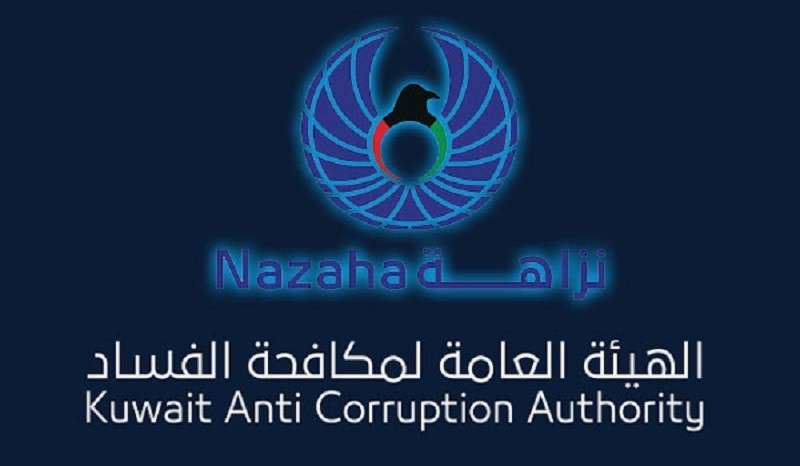Latest News
- Checdking's$with Special"s & Characters#update
- Testing New's To Check's Utf "issue"#update
- Palestine Full UN Entry Backed By Kuwait
- Expatriate Clicks On Link, Loses All Savings
- Kuwait Weekend Weather: Hot Weather And Scattered Rain
- Former MP Tabtabaie Goes To Trial On May 20
- Missing Algerian Man For 25 Years Found And Held Captive By Neig...
- Citizen Detained For Alleged Involvement With A Banned Group
- Kuwait And Ethiopia To Sign MoU For Domestic Workers Recruitment
- Service Bureau Announces Training Plans For Employees And Gradua...
- Filipino Worker Remittances Decline In Kuwait
- Health Ministry Reaffirms Commitment To Modernizing Healthcare S...
49 Corruption Incidents Received By Kuwait Anti-corruption Authority

Acting Head of Communication Reception at Kuwait Anti-Corruption Authority (Nazaha) Fahad Al-Daihani revealed that 49 reports of corruption incidents were received this year by Nazaha, some of which are currently undergoing formal and substantive investigation procedures, according to Al-Rai Daily.
In an exclusive press statement, Al-Daihani said, “The authority has referred six corruption reports this year to the competent authorities.”
Nazaha intends to continue to examine and collect inferences and investigations related to all serious communications it receives.
The authority appreciates the role whistleblowers play in helping it obtain necessary information about corruption incidents, explained Al-Daihani. At the same time, it is committed to providing the highest levels of protection and confidentiality necessary for them, as imposed by the law and the executive regulations.
All individuals at Nazaha headquarters, gate No. 7, are welcome to provide any information they have about corruption incidents, which will be treated with the utmost seriousness and confidentiality.
Regarding the crimes of illegal gain, Al-Daihani said, “The crime of illegal gain is one of the new corruption crimes that are not stipulated in the Penal Code or complementary laws. The criminalization of this act coincided with the development of modern means that are used to commit crimes against public funds or abuse of office to gain individual interest. The goal is to set penalties that are enough to deter anyone who tempts to loot public money or tamper with the integrity of the public office, so that it affects every act committed inside or outside the country.
This crime is proved by vetting committees in the authority that analyze the financial disclosure statement of the subject. For this purpose, it may make a number of inquiries about the components of the financial disclosure and exercise its powers to view bank accounts of the one who shifts the burden of proving the sources of funds that are not commensurate with his resources.
A person who is unable to justify an increase in his financial liability or a decrease in his obligations resulting from the assumption of a job capacity is considered to have committed the crime of illegal gain. A conviction for this can result in imprisonment for a period of less than five years, confiscation of the illegitimate gain, a fine equivalent to the value of the confiscated funds, as well as dismissal from public office.
Get The Latest and important news on our Telegram Channel click here to join
Trending News
-
 Ministry Systems Hacked, Electricity Bills Altered
11 May 2024
Ministry Systems Hacked, Electricity Bills Altered
11 May 2024 -
 Kuwait Unveils Monumental Solar Energy Project For...
06 May 2024
Kuwait Unveils Monumental Solar Energy Project For...
06 May 2024 -
 Expatriates Caught On Video Stealing Electricity W...
11 May 2024
Expatriates Caught On Video Stealing Electricity W...
11 May 2024 -
 Team To Inspect New Airport's Solar Panel Installa...
12 May 2024
Team To Inspect New Airport's Solar Panel Installa...
12 May 2024 -
 Gulf Electrical Interconnection Project Will Boost...
04 May 2024
Gulf Electrical Interconnection Project Will Boost...
04 May 2024 -
 Issuing Work Permits Based On Academic Certificate...
07 May 2024
Issuing Work Permits Based On Academic Certificate...
07 May 2024 -
 Kuwait Banks Seek Clarity From Central Bank On Cit...
04 May 2024
Kuwait Banks Seek Clarity From Central Bank On Cit...
04 May 2024 -
 Eid Al-Adha Holiday In Kuwait: Potential 9-Day Bre...
15 May 2024
Eid Al-Adha Holiday In Kuwait: Potential 9-Day Bre...
15 May 2024 -
 Kuwait Cracks Down On Bachelors
02 May 2024
Kuwait Cracks Down On Bachelors
02 May 2024 -
 Kuwait Organizes 30 Events To Protect Children Fro...
04 May 2024
Kuwait Organizes 30 Events To Protect Children Fro...
04 May 2024











Comments Post Comment